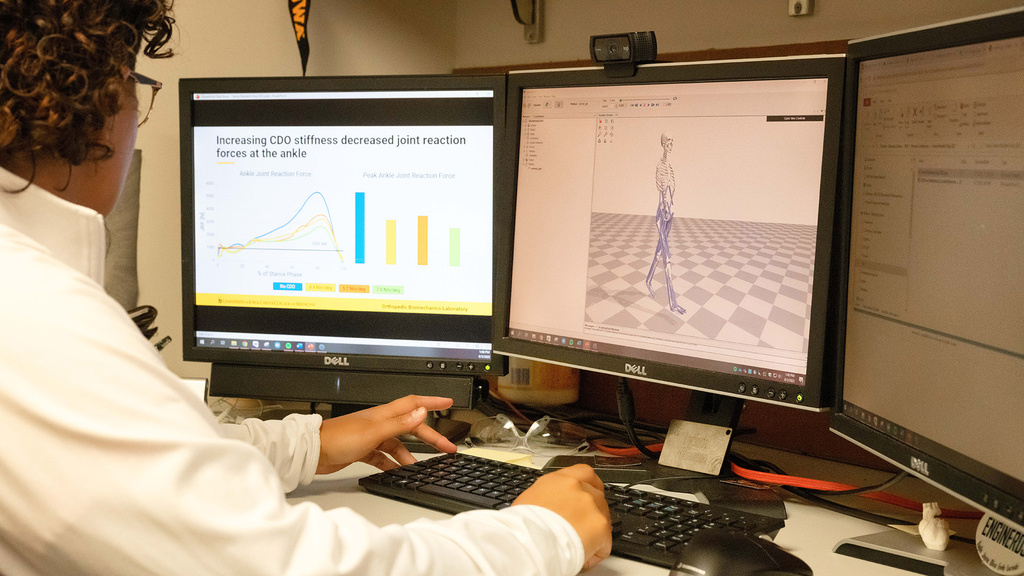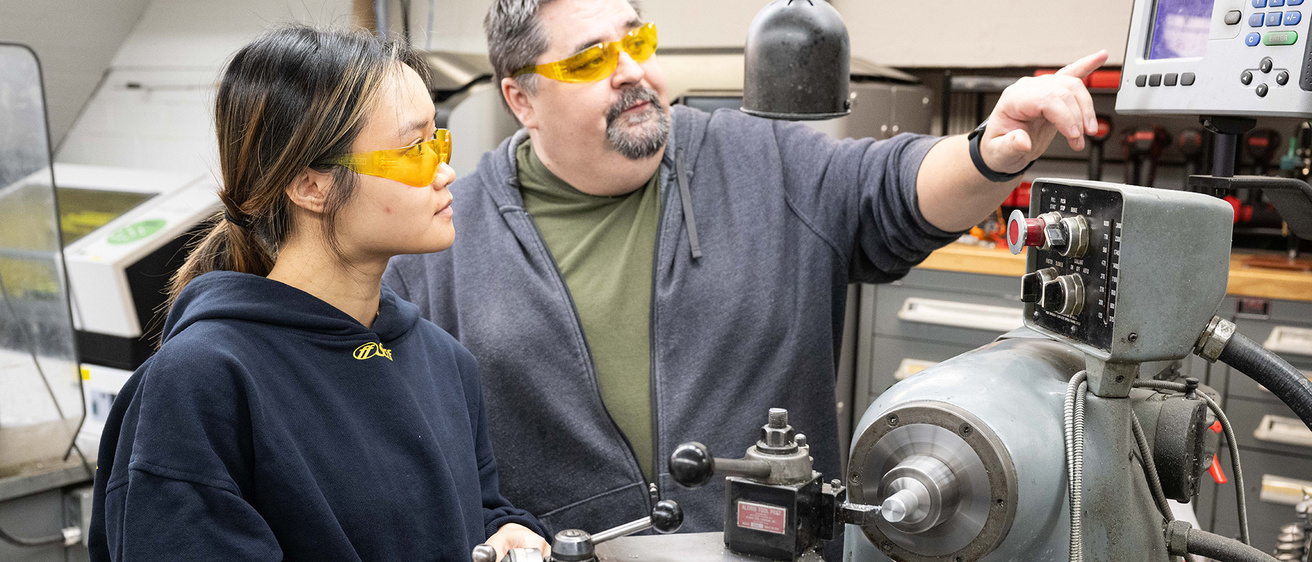A master’s degree will expand your knowledge, open doors to certain work, and boost your earning potential — but at the expense of more time in school and tuition. Do your goals make it a worthy investment?
If you’re thinking about taking your biomedical engineering career to the next level, you’ve probably asked yourself this question: Is getting a master’s degree in biomedical engineering worth it? Whether you’re a recent grad figuring out your next step or a working professional considering a return to school, a biomedical engineering degree at the master’s level can open doors — but only if it aligns with your goals.
Why should I get a master’s degree in biomedical engineering?
One of the biggest advantages of a master’s degree is specialization. You’ll dive deeper into a specific area — medical imaging, biomaterials, or tissue engineering, for example — and develop the kind of expertise that sets you apart in today’s competitive job market.
“Developing that depth makes you even more attractive to industry. You can go on to work at well-known medical device companies, such as Medtronic or Stryker, and oversee product development or lead a research group,” says Mike Schnieders, a professor of biomedical engineering at the University of Iowa.
You’ll also have access to more advanced roles. If you’re interested in research and development (R&D), working in academia, or moving into leadership or product management, a master’s degree can be a game-changer. Plus, you’ll gain exposure to emerging technologies and build a strong foundation in both theory and application, things that employers and PhD programs look for.
Graduate study isn’t for everyone, but it’s a great fit if:
- You’re aiming for R&D roles that require technical depth and lab experience.
- You’re considering a PhD or a career in academia.
- You want to move into leadership positions in biotech, medical devices, or health tech.
At the University of Iowa, graduate students in biomedical engineering benefit from close mentorship, hands-on research, and access to cutting-edge facilities. You can collaborate with both the College of Engineering and the Carver College of Medicine, creating the kind of interdisciplinary experience that reflects real-world innovation. Iowa’s programs are designed not just to deepen your knowledge but to help you apply it through internships, research partnerships, and industry engagement.
Which master’s degree is best for biomedical engineering?
While exploring the different types of biomedical engineering degrees, it’s important to find the right fit for your career goals. Here are the main options:
- Master of Science in Engineering (MSE): If you want to advance your skills and knowledge, do research, or eventually earn a PhD, this is your go-to.
- Master of Engineering (MEng): More industry-focused, this is great if you’re looking to level up your career with additional technical skills without diving into research.
- Online biomedical engineering master’s programs: These are ideal if you’re already working and need flexibility. Just be sure to check whether the program offers hands-on labs or capstone projects.
Think about where you want your career to go. Interested in wearable tech? Look into bioinstrumentation. Leaning toward pharmaceuticals or regenerative medicine? Tissue engineering could be your lane.
“All areas of specialization can benefit from more in-depth training, whether it’s imaging, biomechanics, cellular engineering, or computational bioengineering. In each of these areas, in-depth study solidifies your foundation-level expertise,” Schnieders says. “An advantage of the master’s degree with a research thesis component is that it encourages students to think through an open-ended problem over a course of one to two years, which is complementary to formal coursework and serves as preparation for future employment opportunities in both public and private sector research programs.”
The University of Iowa gives you the flexibility to tailor your graduate experience through elective courses and research aligned with your goals. And if you’re still exploring your options, check out this full breakdown of types of biomedical engineering degrees to help guide your decision.
How much money does a biomedical engineer with a master’s degree make?
Salary is often a deciding factor when it comes to graduate school — and in biomedical engineering, a master’s degree can deliver a strong return on investment.
Those with master’s degrees often earn 30% more one year after graduation than their peers with bachelor’s degrees. That increase falls as the years pass, but those with master’s degrees still earn 13% more five years after graduation.
| Degree level | Average median earnings (1 yr post grad) | Average median earnings (5 yrs post grad) |
|---|---|---|
| Bachelor's degree | $54,518 | $96,582 |
| Master's degree | $70,941 | $109,387 |
While you likely will earn more with a master’s degree, it’s important to consider how much you’ll pay to earn that degree. You’ll want to factor that in when deciding whether getting a master's degree is worth the return on your investment.
A master’s degree won’t just help you earn more; it can also give you access to higher-level jobs, faster promotions, and roles with more impact. Many employers value the technical depth, project leadership, and advanced problem-solving that come with graduate training.
Related content

Biomedical engineering degree types: What degree is right for you?

Can you get into med school with a biomedical engineering degree?

